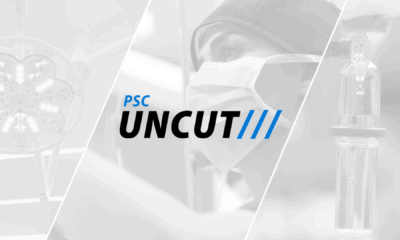Social media impacts every aspect of life today, including plastic surgery. It is estimated that over half of the plastic surgeons in the United States use some form of social media to market their practice. Furthermore, 40% of patients claim that social media influenced their choice of doctor. Is this a good thing or a bad thing?
Dr. Adam Hamawy of Princeton, NJ and Dr. Anup Patel of Orlando, FL discuss social media and plastic surgery. What role should it play, if any? And what does the consumer need to watch out for so that he or she isn’t sold a bad bill of goods?
Social Media & Plastic Surgery
When it comes to plastic surgery, social media is here to stay. And surgeons need to learn to deal with it, whether they use Facebook, Instagram, Twitter or YouTube to market their practice. “It’s a tool and it’s a good tool if you use it properly,” explains Dr. Hamawy. For him, it’s a way to educate potential patients.
There is a lot of false information on the internet. Social media allows plastic surgeons, who use it responsibly, to show patients how plastic surgery can help improve their lives. It is also a quick and effective way to debunk false information. Dr. Patel agrees: “It’s a great way for us to reach the consumer, our patients, fast. But it does, at the same time, invite some bad things.”
Separating Truth from Fiction
There are doctors who are not qualified to perform plastic surgery who market themselves online as if they are. Unfortunately, people believe all kinds of falsehoods; this can dilute the good that’s being done by actual qualified surgeons. One of the areas that is ripe for lies are before and after photos.
How can a patient tell if a photo has been altered? Here are some things to look for:
- Is the lighting the same in both photos?
- Does the background look blurry?
- Is the patient only wearing makeup in the after photo?
- Does the patient look as if 4 ribs have been removed?
Bottom line, people lie on social media, and this includes some plastic surgeons.
The answer to this is a requirement for would-be patients to do their homework. A simple way to ensure that a plastic surgeon has the training, expertise and artistic eye to execute complex, aesthetic procedures is to check that he or she is board certified. This can be found on the website of the American Board of Plastic Surgery.
Walking the Line Between Entertainment and Education
“If, as plastic surgeons, we are not on there and using social media, someone else will. It’s really an obligation for us, at this point in time, to be active on there, and show people what reality really is,” explains Dr. Hamawy. Patients love looking behind the curtain. They are obsessed with procedure videos that show the surgery – sometimes the gorier the better. Patients also like it when a surgeon is silly or creates a video that feels more like a comedy than a documentary. How then does the plastic surgeon figure out how to walk that line between entertainment and education?
It is going to be different for every plastic surgeon. And not every surgeon is going to be comfortable showing a buttock augmentation with digital glitter shooting out of the patient’s fanny. The important thing is for a surgeon’s social media to be authentic. It must reflect his or her personality, and be truthful.
Yelp & Patient Reviews
If social media is here to stay, what about sites such as Yelp? Do patient recommendations and comments have a place? It’s difficult to know what Yelp is doing behind the scenes with their reviews; some businesses claim good reviews are deleted, but no one really knows. This can, and has, been problematic for many businesses.
Patel is a bigger fan of direct marketing tools such as Facebook and Instagram. These are managed by the plastic surgeon, not necessarily the companies, and are typically much better avenues for the patient in terms of presenting a realistic representation of that surgeon as well as his or her capabilities.
Still, just because Yelp is steeped in controversy does not mean that reviews in general are bad. Dr. Hamawy believes that they are a good way “to give you a sense if someone has been doing a good job.”
The patient needs to be smart. No plastic surgeon, no matter how talented, is going to be universally loved. So, if you go onto a site such as Yelp or Facebook, and all you read are 5 star reviews and/or glowing comments of praise, be wary. Variety is the spice of life! If a site is realistic, there is probably going to be at least 1 bad review. Trust your instincts and trust that meeting a surgeon in a consultation will be the ultimate decider as to whether they are for you.













Facebook
Twitter
Instagram
YouTube
RSS